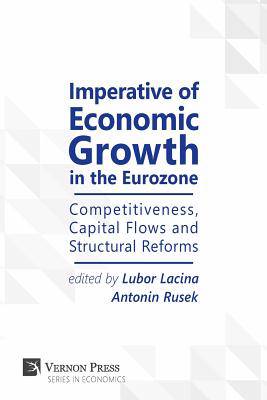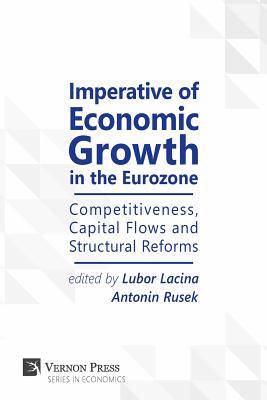
- Afhalen na 1 uur in een winkel met voorraad
- In januari gratis thuislevering in België
- Ruim aanbod met 7 miljoen producten
- Afhalen na 1 uur in een winkel met voorraad
- In januari gratis thuislevering in België
- Ruim aanbod met 7 miljoen producten
Imperative of Economic Growth in the Eurozone
Competitiveness, Capital Flows and Structural Reforms
Omschrijving
European economic recovery appears to be taking hold. So is the European crisis over? The acute phase of the crisis passed, however a number of medium and long term issues remain. The policies of "internal devaluations" are working, albeit slowly, to restore competitiveness in the countries most affected by the crisis. However, growth remains at best sluggish. The medium and long term outlook remains highly uncertain, fomenting social tensions and endangering political stability.
The restoration of economic dynamism is increasingly perceived as the answer to the question of the "European" future - economically, politically and socially. There is a broad consensus that dynamic structural reforms and the restoration of competitiveness at the level of the global economy are key answers to current European challenges.
However, whatever the form these may take, the transfer of resources is implicit (and seemingly necessary), to underpin the current structure of eurozone. This indeed raises the question of governance - both fiscal and monetary. After all, the provision of resources implies an allocation - and it is hard to imagine that resources will be provided to the common pool unless the providers have some say with respect to allocation. And that requires some form of common (i.e. centralized) decision-making procedures, in all likelihood exceeding the common understanding of the acquis communautaire as it exists today - i.e. some form of the effective political arrangement.
In this context, the basic idea which connects all contributions in this volume is the analysis of the problems which affected the Eurozone in the past decade and the challenges and dilemmas the Eurozone will face in the coming years.
Specificaties
Betrokkenen
- Uitgeverij:
Inhoud
- Aantal bladzijden:
- 268
- Taal:
- Engels
- Reeks:
Eigenschappen
- Productcode (EAN):
- 9781622733408
- Verschijningsdatum:
- 8/03/2018
- Uitvoering:
- Paperback
- Formaat:
- Trade paperback (VS)
- Afmetingen:
- 152 mm x 229 mm
- Gewicht:
- 362 g

Alleen bij Standaard Boekhandel
Beoordelingen
We publiceren alleen reviews die voldoen aan de voorwaarden voor reviews. Bekijk onze voorwaarden voor reviews.








